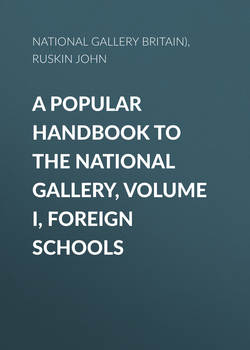Читать книгу A Popular Handbook to the National Gallery, Volume I, Foreign Schools - National Gallery (Great Britain) - Страница 88
NUMERICAL CATALOGUE, WITH BIOGRAPHICAL AND DESCRIPTIVE NOTES
71. A PARTY OF MULETEERS
ОглавлениеJan Both (Dutch: 1610-1662).
Jan Both, born at Utrecht, was one of the first "Italianisers" in landscape. He was the son of a glass painter, who gave him his first lessons in drawing; he afterwards became the pupil of Abraham Bloemaert. As soon as he was old enough to travel, he set out with his brother Andries for Italy. Unlike Rubens, who even at Genoa painted only the Netherlands, Both adopted Italian scenery as his subject. At Rome he formed his style on that of Claude. The two brothers travelled, studied, and worked in Italy together. Jan excelled in landscape; the figures and cattle in his pictures were generally sketched by Andries. After some years at Rome, the brothers worked for a time at Venice; here Andries, having dined one evening not wisely but too well, fell from his gondola into the water and was drowned. This was a terrible blow to Jan, who returned to Utrecht in despair, where he survived his brother for some years, during which Poelenburgh took the place of Andries (see No. 209). In the year 1649 Jan was one of the chiefs of the Painters' Guild at Utrecht, and the inscription on an engraved portrait of him published in 1662 speaks of him as a "good and well-respected landscape painter." Both loved to paint abruptly-rising rocks, with mountain paths fringed with trees, and cascades or lakes in the foreground. His best works are distinguished by the soft golden tones of the declining day. Several good examples of this master are to be seen at the Dulwich Gallery.
A reminiscence, doubtless, of one of Both's journeys in the Italian lake district. One may recall the reminiscence of Italy by another northern traveller —
Know'st thou the mountain bridge that hangs on cloud?
The mules in mist grope o'er the torrent loud,
In caves lie coil'd the dragon's ancient brood,
The crag leaps down and over it the flood:
Know'st thou it, then?
'Tis there! 'tis there
Our way runs; O my father, wilt thou go?
Mignon's song in Wilhelm Meister: Carlyle's translation.
